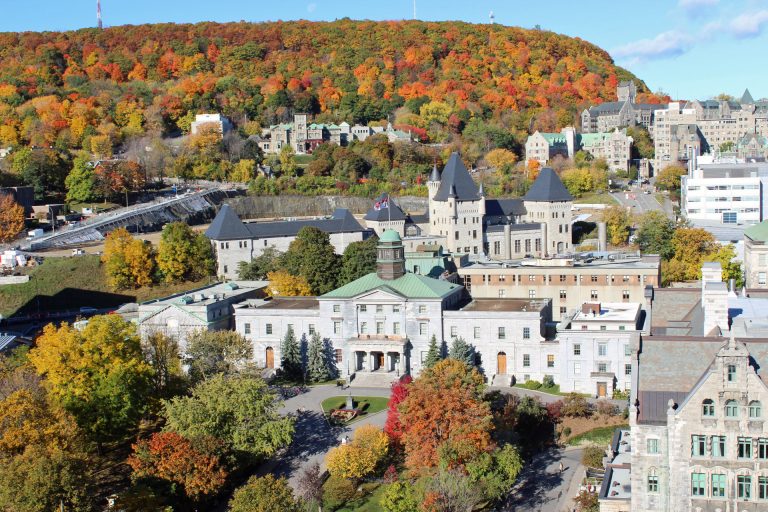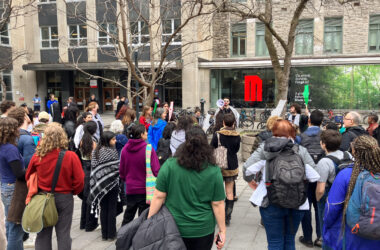After two years of pandemic-related closures and restrictions, Provost and Vice-Principal (Academic) Christopher Manfredi and Vice-Principal (Administration and Finance) Yves Beauchamp announced on Feb. 22 that the Fall 2022 semester will be held entirely in person. The statement came as COVID-19 cases and hospitalizations in Quebec continue to decline and the provincial government gradually eases many of its pandemic restrictions—such as the vaccine passport, limits on private gathering, and work-from-home orders.
All classes, regardless of size, will take place on campus in the Fall 2022 semester. This is a marked change from the Fall 2021 and Winter 2022 semesters, which had in-person courses capped at 150 and 200 people, respectively. Other activities, such as research and extracurriculars, will also return to routine pre-pandemic operations.
Manfredi and Beauchamp clarified in their announcement that students should still expect some COVID-19 measures to continue into the coming semester. Frédérique Mazerolle, a McGill media relations officer, said that the university will provide further information as the fall semester approaches.
“Appropriate measures will still be in place to ensure that our campuses continue to be safe and we will remain vigilant as the pandemic continues to evolve,” Mazerolle wrote in an email to The McGill Tribune. “As usual, we will provide regular updates as we continue to return to more in-person activities over the coming months.”
Student reactions to McGill’s announcement have been mixed. Some, like Herman Korsunov, U2 Management, believe that it is time to lift pandemic restrictions. Korsunov noted that many core, introductory-level classes in his program often exceed the capacity limits that were set for in-person delivery over the last two years—resulting in some students experiencing university almost solely online. These students, Korsunov argued, have been put at a serious disadvantage by their lack of in-person schooling, particularly because they have missed out on networking opportunities.
“A major part of business, and the whole Desautels Faculty of Management, is that you need to communicate with people, you need to make some friends, you need to network,” Korsunov said. “That’s how, for example, […] I found my internship, I met some people, I’ve done some extracurriculars. They’re all thanks to communication and talking to people [….] We need to have all classes to be in person mainly for the social and meeting-the-people part. I think the education technique can be online, but it’s not as efficient from what I saw.”
Others, like Anthony Georgaros, U2 Arts, say the university’s decision is premature, given the pandemic’s past unpredictability.
“In my opinion, it’s a little early to make such a bold call,” Georgaros wrote in a message to the Tribune. “[The] administration should probably wait until the summer to confirm if they should return to fully in-person classes because chances are they will have to go back on that if the trend from the last couple years continues.”
The university did not answer the Tribune’s questions on what accommodations will be available for the coming semester, how the rollback of the vaccine passport will transpire at McGill, and under what circumstances, if any, the decision to resume full activities may be modified.









